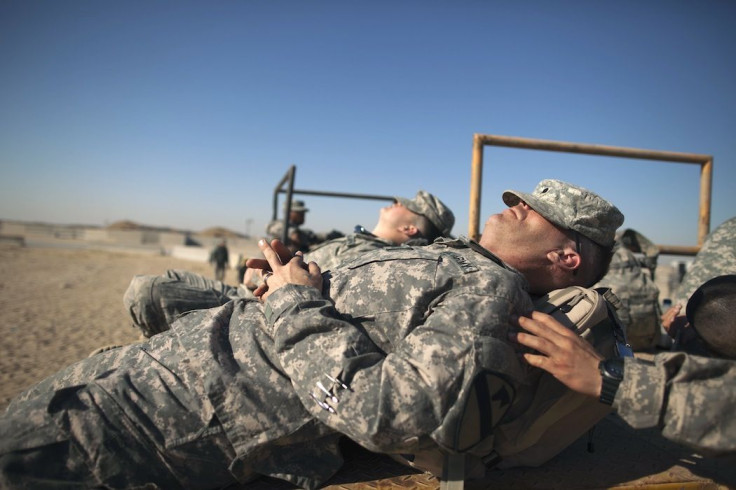Energy Drinks Causing Sleepiness in Combat Troops: CDC

A new government report warns that energy drinks can cause sleep problems and daytime sleepiness among U.S. soldiers in combat zones.
Government researchers conducted a random survey of service members deployed in Afghanistan in 2010 and found that 45 percent of U.S. Army and Marine combat troops consumed one or more energy drinks a day and 14 percent consumed three or more daily.
The report published in the Nov. 9 Centers for Disease Control and Prevention's Morbidity and Mortality Weekly report, found that soldiers who consumed three or more energy drinks a day were more likely to get fewer than four hours of sleep a night compared to those who consumed two or fewer energy drinks a day.
Soldiers who drank three or more energy drinks a day were also more likely to report sleep problems related to personal or combat stress and illness and were more likely to doze off during briefings or while on guard duty.
Researcher Robin Toblin, of the Military Psychiatry Branch at Walter Reed Army Institute of Research, and colleagues noted in the report that high-caffeine energy drinks are becoming increasingly popular among American teens and young adults.
Some energy drink brands can contain caffeine equivalent to 1 to 3 cups of coffee or cans of soda. Besides caffeine, many energy drinks include ingredients such as herbal substances, amino acids, sugars, sugar derivatives, and other ingredients intended to boost physical energy or mental alertness.
Researchers said that the findings show that soldiers who consume high amounts of energy drinks during combat operations are more likely to experience sleep problems and daytime sleepiness.
They say that the latest findings indicate that solders need to be educated about the potential harmful effects consuming energy drinks can have on sleep and mission performance.
"Service members should be educated regarding the potential adverse effects of excessive energy drink consumption on sleep and mission performance and should be encouraged to moderate their energy drink consumption in combat environments," researchers wrote in the CDC report.



























